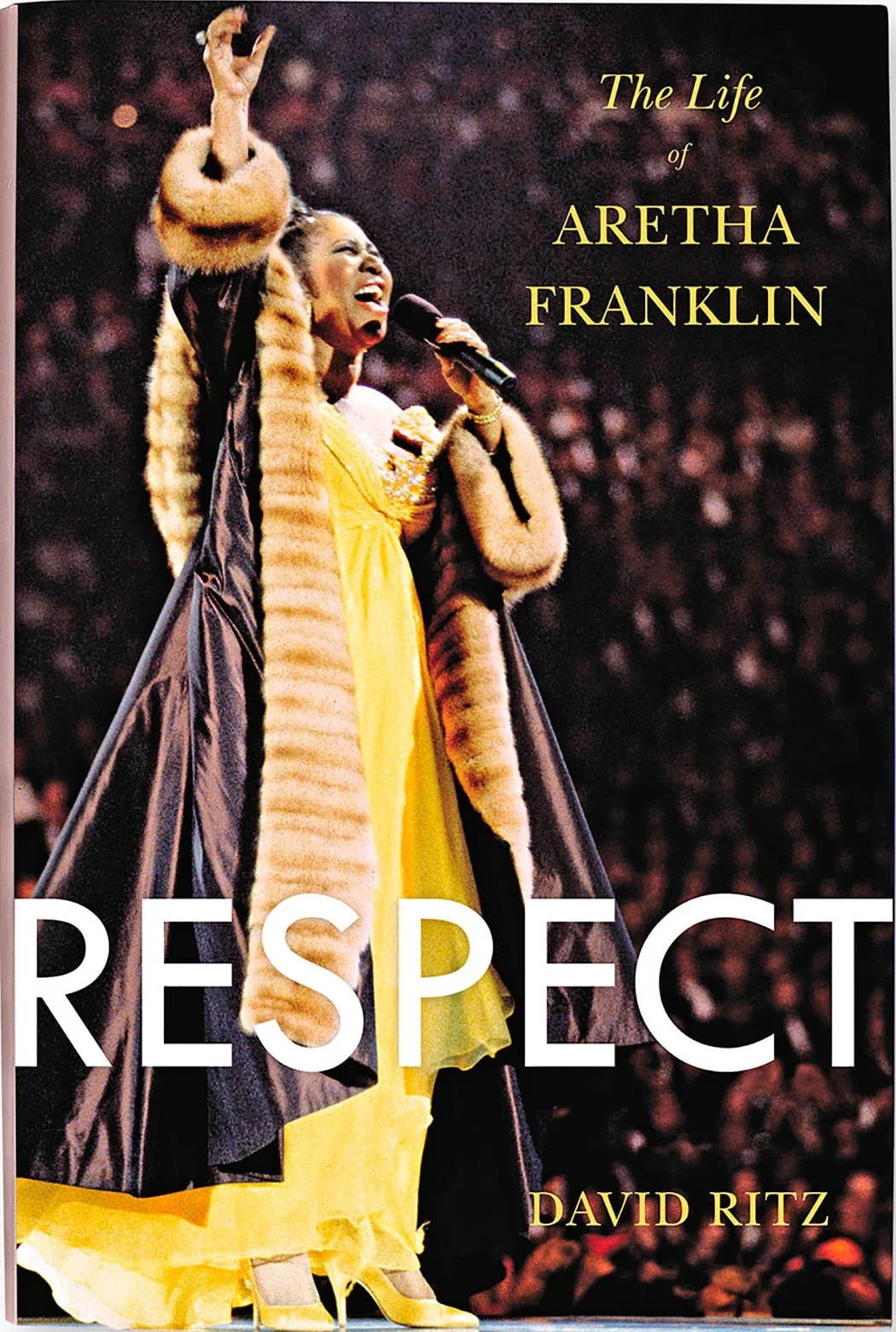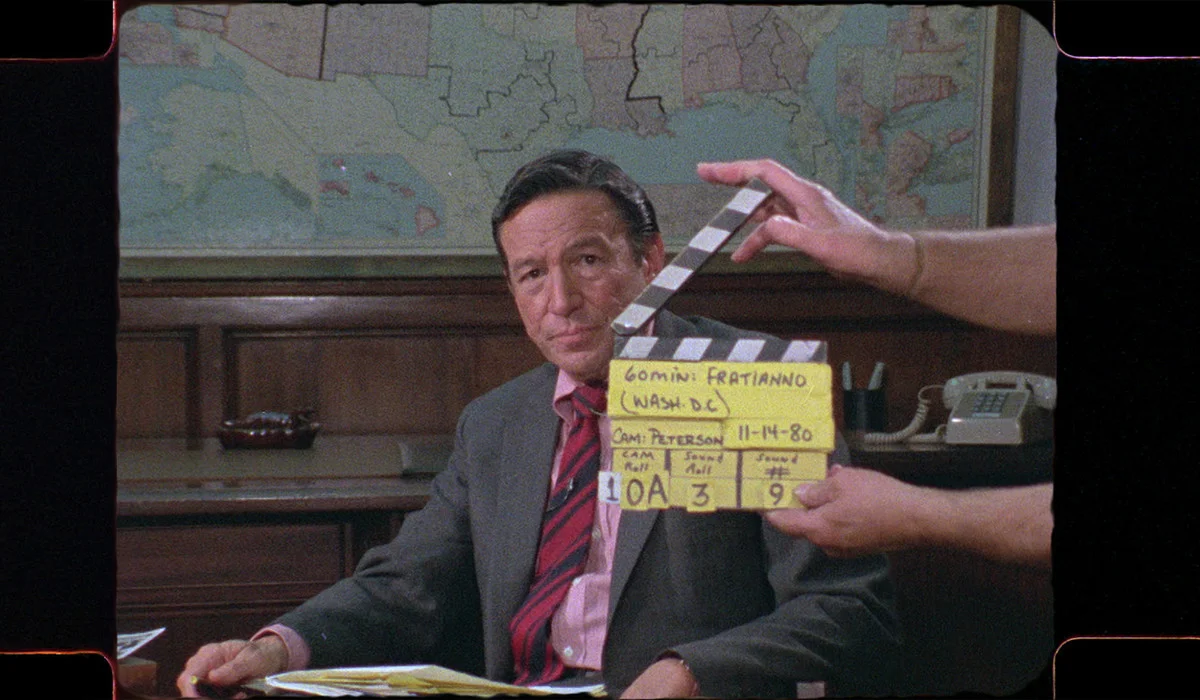5 Books I Want to Read after Attending True/False Film Festival 2019
5 Books I Want to Read after Attending True/False Film Festival 2019
This is my second annual roundup of books I’m inspired to read after attending the True/False Film Festival. See 2018’s list, here.
1 - After seeing Amazing Grace, I want to read Respect: The Life of Aretha Franklin by David Ritz
5 Books I Want to Read after Attending True/False Film Festival 2019
About the film:
In 1972, having topped the pop charts with a series of hits, Aretha Franklin returned to her family’s gospel roots. She held two concerts of the most deeply moving spirituals at a Baptist church in Watts, a Los Angeles neighborhood still recovering from the riots six years earlier. Director Sydney Pollack was hired to document the shows, but he neglected to bring the clappers to mark the sound. As a result, the footage sat unused for more than 40 years. Just months after Franklin’s death, this film is finally being seen, and it’s an unforgettable testament to her musical influences and legacy. The camera pans across the ecstatic audiences and then returns to Aretha’s soaring vocals. It makes for a raw, exalted performance, buoyed by the Southern California Community Choir and jubilant attendees taken over by the spirit. (PS)
5 Books I Want to Read after Attending True/False Film Festival 2019
About the book:
The definitive biography of the Queen of Soul from acclaimed music writer David Ritz.
Aretha Franklin began life as the golden daughter of a progressive and promiscuous Baptist preacher. Raised without her mother, she was a gospel prodigy who gave birth to two sons in her teens and left them and her native Detroit for New York, where she struggled to find her true voice. It was not until 1967, when a white Jewish producer insisted she return to her gospel-soul roots, that fame and fortune finally came via "Respect" and a rapidfire string of hits. She has evolved ever since, amidst personal tragedy, surprise Grammy performances, and career reinventions.
Again and again, Aretha stubbornly finds a way to triumph over troubles, even as they continue to build. Her hold on the crown is tenacious, and in RESPECT, David Ritz gives us the definitive life of one of the greatest talents in all American culture.
2 - After seeing Apollo 11, I want to read The Eagle Has Landed: The Story of Apollo 11 by Jeffrey K. Smith
5 Books I Want to Read after Attending True/False Film Festival 2019
About the film:
Fifty years ago, more than a million spectators gathered to watch the launch of the first manned trip to the moon. It was less than a decade after President Kennedy declared that the U.S. would be “landing a man on the moon and returning him safely to the Earth.” Director/editor Todd Douglas Miller’s film spectacularly stages Apollo 11’s launch, peers intimately over the shoulders of the engineers in NASA’s Houston control room, and hurtles through space before relaying Neil Armstrong and Buzz Aldrin’s historic first steps on the moon. Each tactical maneuver and video transmission is breathless proof of collective action by a united nation. Assembled wholly from 70mm footage filmed during the mission, this time capsule immortalizes the Apollo 11 mission as a heart-pounding thriller.
5 Books I Want to Read after Attending True/False Film Festival 2019
About the book:
On July 20, 1969, as a worldwide television audience of 500 million watched, Neil Armstrong became the first man to step foot on the Moon. Nearly a half-century later, Armstrong's words still resonate: "That's one small step for man, one giant leap for mankind." The historic Space Race began with the Soviet Union launching the world's first orbiting satellite, Sputnik, on October 4, 1957 and ended with the successful Apollo 11 mission. While the Space Race is commonly remembered as a time of innovation and technological advances, powerful, yet often overlooked forces, were at play. Politics and money were among the prime catalysts of space exploration. While history was being made and new heroes were discovered, the aerospace industry reaped enormous profits and political careers blossomed. "The Eagle Has Landed: The Story of Apollo 11" chronicles the triumphs and tragedies of America's quest to land on the Moon, beginning with the stories of the visionaries who made made space explorating a reality. It is remarkable story of poltical gamesmanship, innovation, perserverence, and courage.
3 - After seeing Mike Wallace is Here, I want to read Between You and Me: A Memoir by Mike Wallace and Gary Paul Gates
5 Books I Want to Read after Attending True/False Film Festival 2019
About the film:
The epitome of the brash, merciless investigative reporter, Mike Wallace lived his life on the air. A workaholic with a Bogart-like charisma, Wallace defined himself through tough questioning that cut to the chase. This transcendent celebrity profile, with its access to vast amounts of footage from his 60-year career on TV, moves from his groundbreaking Night Beat show to the launch of 60 Minutes in 1968 to a dangerous trip to Vietnam, interviews with Reagan, and the investigation that began the unraveling of the cigarette industry. Mike Wallace is Here (supposedly the four scariest words in the English language!) explores the nature of ego, drive, and accomplishment, revealing what made the man such a force, whether talking to Johnny Carson, Barbra Streisand, or Ayatollah Khomeini. At its best, the documentary feels like it's being narrated from inside Wallace's head, and throughout it offers a thrilling review of a half-century of world history.
5 Books I Want to Read after Attending True/False Film Festival 2019
About the book:
Mike Wallace. His very name conjures up a certain kind of journalism -- smart, informed, intense, and groundbreaking. Who else has wrangled sit-downs with his roster of world leaders and criminals, celebrities, and underdogs, heroes and scoundrels? Organized by interview subject -- including Presidents, Icons and Artists, Con Men and Other Crooks, The General and the Whistle-Blower -- Between You and Me, now in paperback, is his wry, candid, and revealing look back at sixty years in an unparalleled career.
4 - After seeing Celebration, I want to read The Private World of Yves Saint Laurent & Pierre Berge by Robert Murphy and Ivan Terestchenko
5 Books I Want to Read after Attending True/False Film Festival 2019
About the film:
Beyond the glamour and flashing lights of the runway, the house of Yves Saint Laurent is the epitome of opulence. Olivier Meyrou was given total access to film from 1998 to 2001, but after its sole screening in 2007, Pierre Bergé, co-founder and the puppet master behind the curtain, sued to suppress the film. Freed from legal constraints after Bergé’s recent death, Celebration dives into the day-to-day activity of the renowned couturier. Meyrou lifts the veil on the YSL myth through the final years Saint Laurent led his eponymous fashion house before retiring in 2002. A chain-smoking Saint Laurent ponders his artistic measurements while Bergé oversees each thread with a meticulous eye.
5 Books I Want to Read after Attending True/False Film Festival 2019
About the book:
One of the most talented and influential couturiers of his time, Yves Saint Laurent began his career as Christian Dior’s protégé and went on to become a legendary arbiter of twentieth-century style. Saint Laurent’s extraordinary taste went well beyond the world of fashion, and in this lavish volume, the eight splendid homes he shared with friend and lifelong business partner Pierre Bergé are presented in immaculate detail. Notoriously shy, the designer and Bergé lived in luxury, surrounded by incomparable collections of furniture and art. From the serene interiors of their apartment on the Rue Babylone to the incandescent beauty of the Villa Majorelle in Marrakech, Bergé and Saint Laurent’s sensibilities come alive. Taken after Saint Laurent’s death in 2008, Ivan Terestchenko’s photographs capture these exquisite surroundings in full, showcasing nineteenth-century French décor, important paintings by modern and Romantic artists, and masterpieces of furniture, sculpture, and silver ranging from the Renaissance to the Art Deco era. Though the homes presented here are now empty, The Private World of Yves Saint Laurent and Pierre Bergé is a testament to a rare union of passion, elegance, and supreme connoisseurship.
5 - After seeing One Child Nation, I want to read One Child: The Story of China's Most Radical Experiment by Mei Fong
5 Books I Want to Read after Attending True/False Film Festival 2019
About the film:
This explosive, revelatory look into China’s one-child policy peels away decades of propaganda and indoctrination through the lens of its people. Co-director Nanfu Wang takes us on a monumental odyssey across China, beginning in the rural village where she grew up. She investigates the songs, paintings, and graffiti that propagandized the one-child policy and are woven into every fabric of society, bleeding into the background like a scar that won’t heal. From there the film bursts outward, as Wang points her lens to the officials and midwives who executed the policy through forced abortions and sterilizations. On a path toward reconciling these painful stories with Wang’s own lived experience, the film starts digging, revealing countless ripple effects and illustrating the harm of Western cultural stereotypes of China. This unflinching dive into a nation's past and present leaves us questioning everything.
5 Books I Want to Read after Attending True/False Film Festival 2019
About the book:
An intimate investigation of the world’s largest experiment in social engineering, revealing how its effects will shape China for decades to come, and what that means for the rest of the world
When Communist Party leaders adopted the one-child policy in 1980, they hoped curbing birth-rates would help lift China’s poorest and increase the country’s global stature. But at what cost? Now, as China closes the book on the policy after more than three decades, it faces a population grown too old and too male, with a vastly diminished supply of young workers.
Mei Fong has spent years documenting the policy’s repercussions on every sector of Chinese society. In One Child, she explores its true human impact, traveling across China to meet the people who live with its consequences. Their stories reveal a dystopian reality: unauthorized second children ignored by the state, only-children supporting aging parents and grandparents on their own, villages teeming with ineligible bachelors, and an ungoverned adoption market stretching across the globe. Fong tackles questions that have major implications for China’s future: whether its “Little Emperor” cohort will make for an entitled or risk-averse generation; how China will manage to support itself when one in every four people is over sixty-five years old; and above all, how much the one-child policy may end up hindering China’s growth.
Weaving in Fong’s reflections on striving to become a mother herself, One Child offers a nuanced and candid report from the extremes of family planning.














